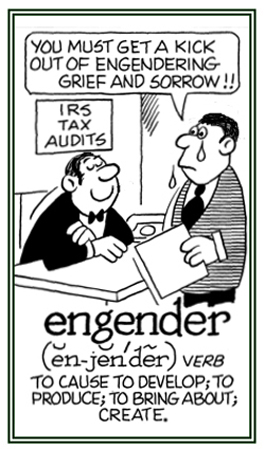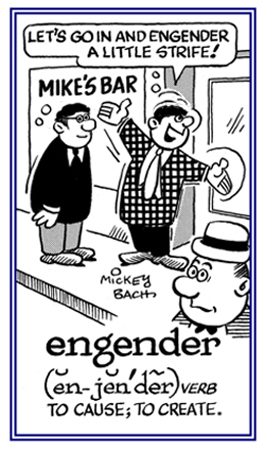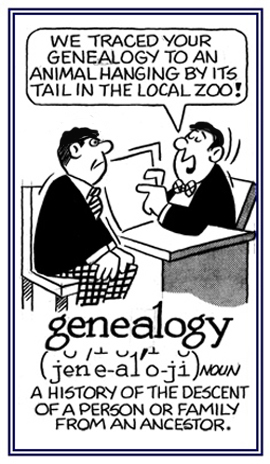genus, genesis-, -gen, -gene, -genesis, -genetic, -genic, -geny, -genous
(Latin: birth, beget; descent, origin, creation, inception, beginning, race, sort; kind, class)


Go to this Word A Day Revisited Index
so you can see more of Mickey Bach's cartoons.
2. The investigation of materials, products, structures or components that break down or do not operate or function as intended: The purpose of forensic engineering is to locate the cause or causes of failure with the objective of improving the performances of the various parts of the equipment.
The gender of a word indicates whether it is masculine (male), feminine (female), or neuter (neither feminine nor masculine); for example: when the man (masculine) was hit by the ball, it (neuter) knocked him (masculine) down and his wife (feminine) helped him (masculine) get back on his (masculine) feet (neuter).
People and animals consist of female genders and male genders while things, objects, etc. are classified as neuter genders."
"These days, the use of the term gender is seen more often instead of using the word sex; such as, when identifying whether a person or an animal is a male or a female."
"When filling out forms, a person is usually asked for his or her age, income, and gender; so, now it seems that gender is being used to indicate a person's sex and sex is being used to indicate sexual activities."



